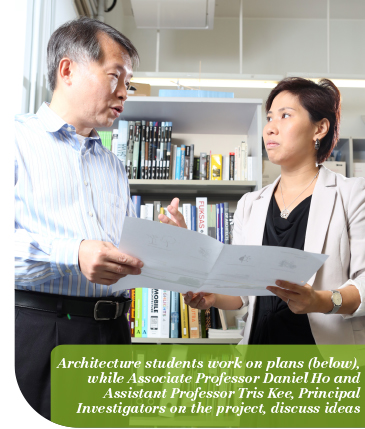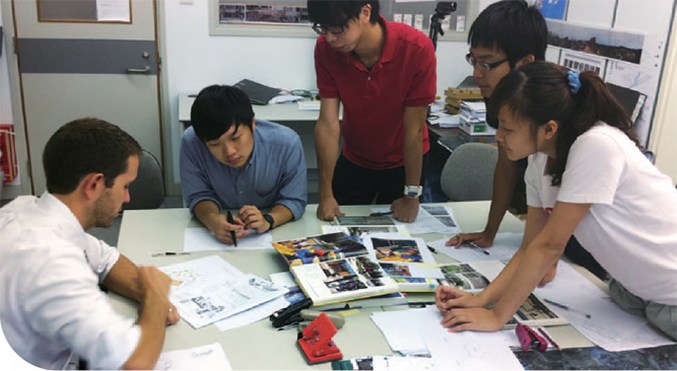 BASIC SCHOOLING
BASIC SCHOOLING
One thing knowledge exchange can do is to highlight issues that may have been neglected by others. That is the case in a study that looks at the feasibility of building a kindergarten for autistic children in Hong Kong.
Currently there is no such dedicated facility in the city, so a team of experts and students from the Faculty of Architecture and Faculty of Business and Economics joined forces to consider how they could fill that need.
The team identified an abandoned building in Discovery Bay that was architecturally sound and could be renovated to meet the needs of autistic children. They produced a business plan as well as an architectural plan that included a play area, wheelchair access, ramps, special bathrooms, a partition for two classrooms and other features.
They also proposed a garden that could be developed by the children.
"We want it to be horticultural therapy so the students can learn from playing with soil and doing the landscaping – to make it a therapeutic and learning experience," says Assistant Professor Tris Kee, Director of Architecture's Community Project Workshop and project co-ordinator for the kindergarten study.
The study, funded by the KE Impact Projects Fund, was also a learning experience for HKU students who were able to put some of their classroom knowledge into practice and sit in on meetings with government officials, where they witnessed the complexity of dealing with bureaucracy.
"The process was rather complicated because we had to work with various government departments and there were multiple procedures," Ms Kee says. Nonetheless, they received practical support from the Education Bureau which assigned a person to provide advice and information that was useful to their proposal.
The final study report was submitted to the government in June. "Now we'll just wait to see if the project is supported. If we can make good use of that vacant site, the government doesn't lose anything," she concludes.
And the community, and children, will gain a new resource.
